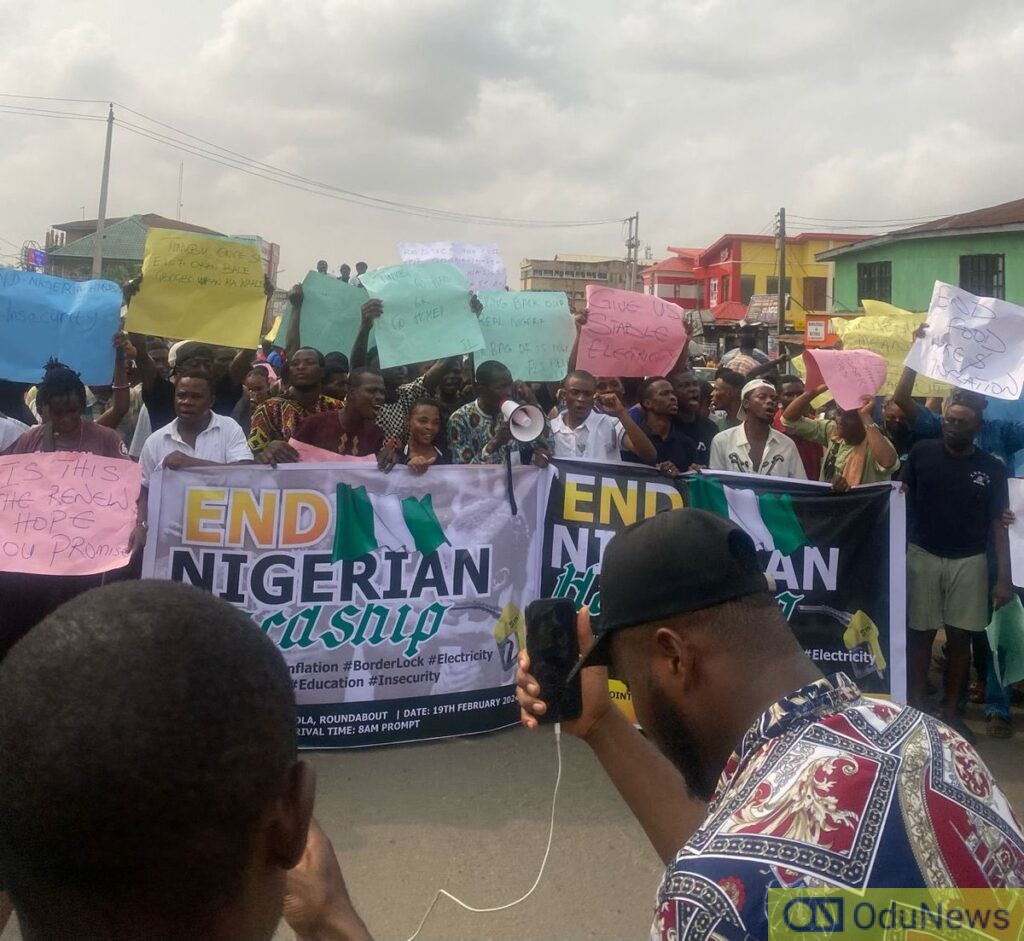On Monday, hundreds of protesters gathered in Ibadan, the vibrant capital of Oyo State, as a notable manifestation of public opposition. They expressed their grievances and demanded that President Bola Tinubu immediately confront the escalating challenges of food insecurity and widespread hunger that have gripped Nigeria.
Protesters, who were composed primarily of young Nigerians, voiced their concerns, expressing deep discontent with the existing state of affairs and imploring the government to implement resolute measures. An atmosphere pervaded with chants and placards bearing inscriptions such as “Tinubu Must Address Insecurity” and “Hunger is Killing Us,” which succinctly encapsulated the perilous circumstances that a significant number of citizens assert to endure.
Peaceful protest going on live at Mokola, Ibadan over the hardship going on in the country ???? pic.twitter.com/mUbmrqx9xd
— Oyindamola???? (@dammiedammie35) February 19, 2024
Protest in IBADAN because of the high cost of living.
— Bobby Black (@Iam_Bobbyblack) February 19, 2024
Protests Ongoing in Ibadan right now!
“Tinubu you are a ripper, I waste my volt” pic.twitter.com/rApIrTNo7Y
— Harry ???? (@harrizone98) February 19, 2024
In light of the increasing cost of living, the protestors emphasised the intolerable burden it has imposed on the general public, rendering fundamental necessities almost unaffordable for the typical Nigerian. The nonviolent demonstration highlighted a pivotal moment in Nigeria’s history, given the country’s complex security challenges—which include widespread abductions, robbery, and unremitting attacks by extremist groups—and banditry.
The increase in food costs was an additional subject of concern during the demonstration, as demonstrators expressed their sorrow over the detrimental effects it had on the nutrition and sustenance of families. The demonstrators’ shared objective is to attract the attention of President Tinubu and his administration by advocating for a substantive intervention that would alleviate the challenges experienced by the populace and initiate a process of economic recuperation for the nation.
Although the demonstration has thus far maintained a harmonious tone, an underlying sense of unease and apprehension persists regarding the potential escalation of the situation into violence in the absence of response to the protestors’ entreaties. As an additional precautionary measure, security forces have been stationed in strategic regions, demonstrating the government’s cognizance of the possibility of civil unrest.
The assembly in Ibadan conveys a distinct message to the leaders of the country: the Nigerian people are eagerly awaiting prompt and efficient measures to address the dual challenges of starvation and insecurity. They demand assurances that the government places the utmost importance on their well-being and security.



Comments are closed.